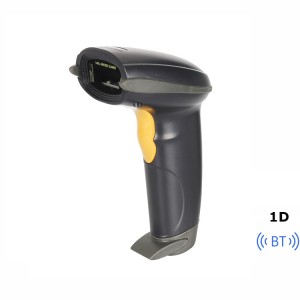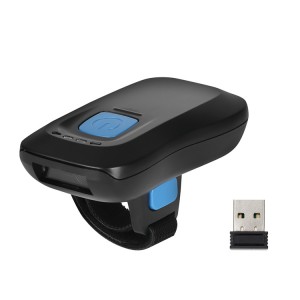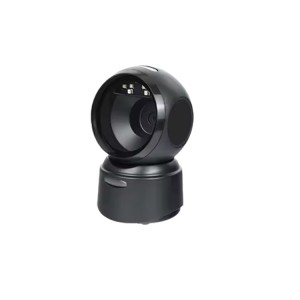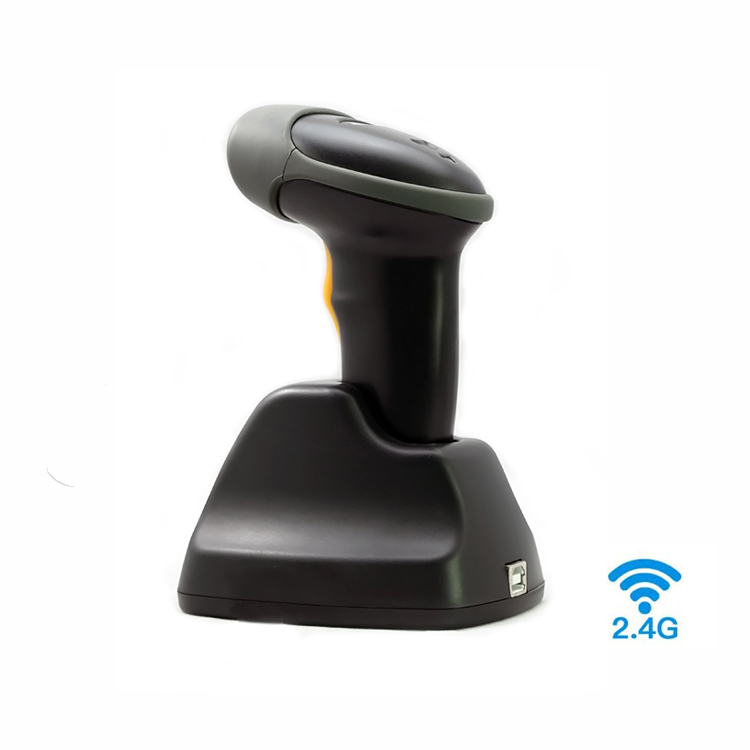Quality Supermarket Barcode Scanner Manufacturers & Suppliers
As a reputable company, we take pride in our expertise and experience as a barcode scanner maker. Our commitment to innovation and quality has made us a trusted supplier in the industry. With our advanced technology and extensive product range, we offer a comprehensive selection of supermarket barcode scanners that deliver exceptional precision and efficiency in scanning barcodes of various types.
MINJCODE factory video
We are a professional manufacturer dedicated to producing high-quality supermarket barcode scanner Our products cover barcode scanner of various types and specifications. Whether your needs are for retail, medical, warehousing or logistics industries, we can provide you with the perfect solution.
In addition, the professional technicians in our team pay great attention to the performance of the printer, and constantly upgrade and innovate to meet the changing needs of customers. We are committed to providing the best service and support to ensure that every customer has the best experience possible.
What is a supermarket barcode scanner?
A supermarket barcode scanner is a device used in grocery stores and supermarkets to read and interpret barcodes on products. It works by emitting a laser or LED light onto a barcode, which then reflects back to the scanner and is decoded into a numerical code that corresponds to the product's information. This information is then transmitted to the store's computer system to update inventory and pricing. Barcode scanners help to improve efficiency, accuracy, and speed at checkout counters.
Hot Models
| Products | MJ2806 | MJ2880 | MJ9320 |
MJ3690 |
| Picture | 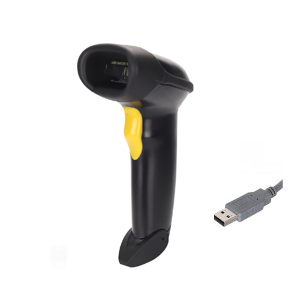 |
 |
 |
 |
|
Resolution |
3.3mil |
4mil |
3mil |
4mil |
|
Light Source |
650nm visual laser diode |
630nm LED |
Red color LED |
Red color LED |
|
Environemental Sealing |
IP54 |
IP54 |
IP54 |
IP54 |
|
Dimension |
169*61*84mm |
168*64*92mm |
96.7mm*104mm*145mm |
140.20mm x 84mm x 90.10mm |
| Material | ABS+PC |
ABS+PC |
ABS+PC |
ABS+PC |
If you have any interest or query during the selection or use of any barcode scanner , please Click the link below send your inquiry to our official mail (admin@minj.cn) directly! MINJCODE is committed to the research and development of bar code scanner technology and application equipment, our company has 14 years of industry experience in the professional fields, and has been highly recognized by the majority of customers!
Application Scenarios of Supermarket Barcode Scanner
1.Quick checkout at the cashier: Our supermarket barcode scanner can easily scan the barcode of goods to enable quick checkout. Through high-speed scanning and accurate recognition, it significantly improves the efficiency of checkout and saves the time for both customers and store staff. You can easily handle large quantities of merchandise and ensure a smooth checkout experience.
2.Inventory Management and Tracking: Our supermarket handheld scanner can help you achieve accurate inventory management and tracking. By scanning product barcodes, the system can automatically update inventory quantities, reducing manual errors and saving time costs . At the same time, you can easily track the sales of goods and inventory status, replenish the needed goods in a timely manner , and avoid the problem of insufficient or excess inventory.
3.Promotion Management: Our supermarket barcode scanner can also be easily applied to promotion management. By scanning product barcodes, you can easily realize promotional activities such as discounts and coupons. This not only enhances your customers' purchasing experience, but also helps you achieve your sales target and improve your brand image. You have the flexibility to set up promotional rules to attract customers and increase sales.
4.Reduce queuing time: Supermarkets benefit from a streamlined checkout process that reduces queuing time. Our handheld scanners integrate advanced technology to help enable a more seamless and faster checkout process, which improves overall customer satisfaction. Customers can quickly scan product barcodes and complete payments quickly, reducing wait times and enhancing the shopping experience.
Supermarket barcode qr scanners are essential tools for the retail industry in providing fast and accurate data capture during the checkout process. These supermarket scanners are designed to streamline operations and improve customer satisfaction by efficiently scanning product barcodes with precision. With options such as laser, linear or area-imaging technologies, supermarket barcode scanners offer exceptional performance and durability in any environment. MINJCODE's range of universal supermarket barcode readers provides a reliable solution for supermarkets looking to enhance their checkout process with reliable barcode scanning technology.
Whether your application requires a quick reading performance, ease of installation and use, accuracy and reliability, MINJCODE has you covered.
Advantages and Limitations of Barcode Scanners
1.Advantages
1.1Improve efficiency: With its fast and accurate scanning function, the barcode scanner greatly shortens the manual operation time, thus improving the efficiency of cashiering and allowing customers to enjoy a faster checkout experience.
1.2Reduce errors : The ability to automatically scan and recognize product barcodes greatly reduces the chance of manual input errors, effectively improving data accuracy and allowing supermarket managers to more reliably rely on data for decision-making and analysis.
1.3Real-time Inventory Updates: The real-time inventory update feature of the barcode scanner allows supermarket managers to easily understand the inventory status of their merchandise, avoiding inventory backlogs and stock-outs, thus providing better supply chain management and inventory control.
1.4Promotion Management: Supermarket scanners can be easily applied to promotion management. By scanning product barcodes, the system can automatically apply discounts, coupons and other promotional rules to enhance the execution of promotional activities, attract customers and increase sales.
2.Limitations
2.1Network dependent: The supermarket omni scanner needs to be connected to a computer or a cloud-based system in order to transmit and update , data. If there is a problem with the network, it may affect the effectiveness of the scanner.
2.2Merchandise label dependent: Bar code scanners require the correct barcode label on the merchandise in order to read the information. If the merchandise label is damaged, defaced, or unrecognizable, the barcode scanner may not function properly, requiring manual intervention or an alternative solution.
2.3Technical Requirements: Operating a barcode scanner requires a certain level of skill. Supermarket employees need to be trained to use the barcode scanner correctly and to process the scanned data. Employees who are unfamiliar with the operation process and system may need some time to adapt and master the skills.
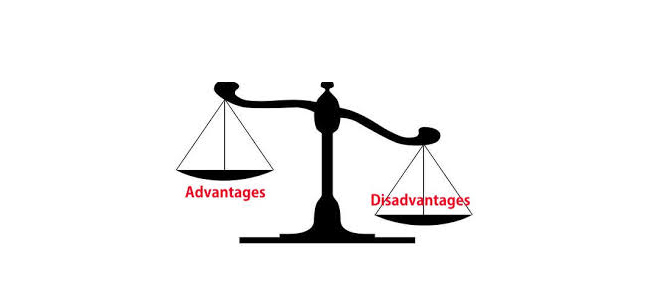
Supermarket Barcode Scanner Reviews
Components of a supermarket barcode scanner
Barcode scanners typically consist of four main components , which are a light source, a sensor, lenses and mirrors, and a decoder.
1.The light source is an integral part of the barcode scanner, producing produces a beam of light through a laser diode or LED to provide the necessary illumination for reading the barcode. This a light source illuminates the barcode, enabling the scanner to accurately read the information encoded on it. barcode.
2.The sensor is the key component that converts the light signal into an electrical signal. When the light reflected from the barcode reaches the scanner, the sensor is responsible for converting it light signal into an electrical signal. Barcode scanners commonly use two main types of sensors: photodiodes and CCDs (charge-coupled devices). These sensors efficiently convert light signals into processable electrical signals.
3.Lenses and mirrors perform key tasks as an important part of the supermarket barcode gun. Their role is to focus and direct the reflected light beam to the sensor. The design of the lenses and mirrors enables the scanner to efficiently capture the reflected light from the barcode, ensuring highly accurate scanning results.
4.The decoder is the key device that interprets the electrical signals from the sensor and converts them into readable information such as letters and numbers. Decoders extract data from the barcode and decode it by analyzing the electrical signals from the sensor. Their efficiency and accuracy ensure that scanners can quickly and reliably parse bar code information.
Supermarket Barcode Scanner Trends in the Market
1.Contactless Scanning: With the rise of contactless payment methods, supermarkets are introducing contactless barcode scanning options. This allows customers to scan items without touching the scanner, thereby improving hygiene and convenience.
2.Artificial Intelligence (AI) and Machine Learning: Artificial intelligence and machine learning algorithms are being integrated into barcode scanners to improve scanning accuracy and speed. These technologies allow scanners to recognize and interpret various types of barcodes, including traditional barcodes, QR codes, and even digital watermarks.
3.Internet of Things (IoT) Connectivity: Barcode scanners are becoming part of the IoT ecosystem in supermarkets. They can connect to a store's network for real-time inventory management, automated replenishment and seamless integration with other systems such as point-of-sale (POS) and customer relationship management (CRM) software.
4.Data Analytics and Insight: Supermarket desktop scanners not only scan items, they also generate valuable data. Supermarkets are using this data to gain insights into consumer behavior, optimize inventory management and personalize marketing strategies. By analyzing scanning patterns and purchase history, supermarkets can make data-based decisions.
5.Green Initiatives: Sustainability is a growing concern in the retail industry. Barcode scanner manufacturers are working to develop energy-efficient scanners, use recyclable materials and promote paperless receipt options. These initiatives help reduce environmental impact and support eco-friendly supermarket practices.

Have a Special Requirement?
Have a Special Requirement?
Generally, we have common thermal receipt printer products and raw materials in stock. For your special demand, we offer you our customization service. We accept OEM/ODM. We could print your Logo or brand name on thermal printer body and color boxes. For an accurate quotation, you need to tell us the following information:
FAQs for supermarket barcode scanner
A supermarket barcode scanner is a device used to read the barcode of an item, which allows you to quickly and accurately obtain information about the item, including price, name and stock.
The reading speed of a barcode scanner depends on the specific model and technology. Most commercial barcode scanners are capable of scanning at hundreds of times per second.
Barcode scanners are typically integrated with POS systems through a USB or wireless connection. They can be connected directly to the POS device or through an intermediate device such as a computer or POS terminal.
Barcode scanners use laser or image sensors to scan barcodes on commodities, and then decode and transmit the information on the barcodes to the computer system, thus realising the identification and processing of commodity information.
Common types of supermarket barcode scanners include handheld scanners, platform scanners and embedded scanning.
The read stability of supermarket barcode scanner on commodity barcode is affected by many factors, including barcode quality, scanning distance, ambient light, etc., generally with strong barcode adaptability.
Some supermarket barcode scanners are equipped with data storage function.

